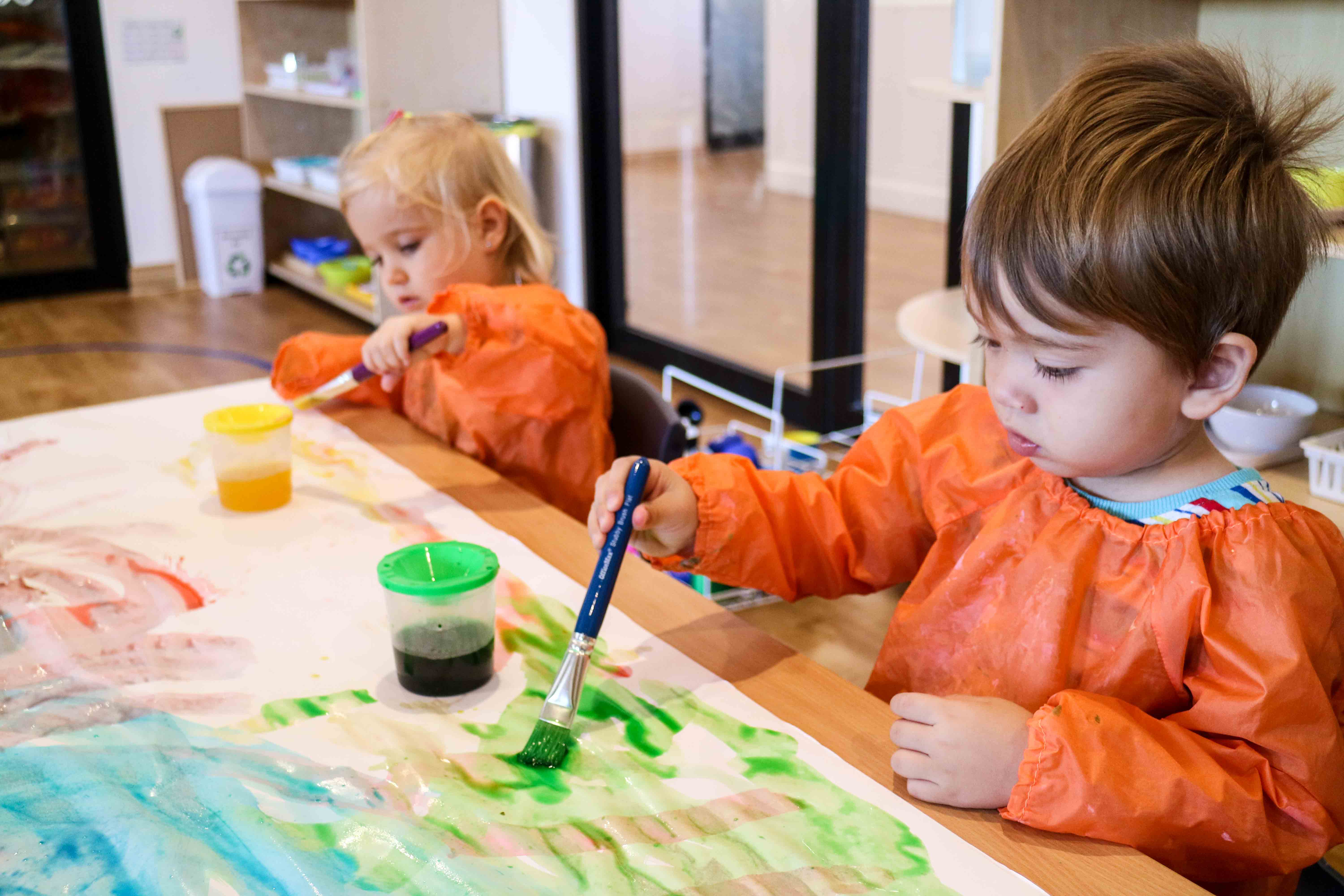Teaching art appreciation, and the
skills associated with artistic expression, is an important part of the
Montessori Art Curriculum. This is because the study of art is
fundamental to children’s creative, visual, sensorial, and emotional
development.
Doctor Maria Montessori didn’t believe that you could “teach” a child
to become an artist; however, she was a strong believer in nurturing
children’s creative abilities and teaching them to develop “…an eye that
sees, a hand that obeys, and a soul that feels.”
At Montessori Academy, our students are exposed to the world of
aesthetics and visual arts daily though an array of learning experiences
that incorporate: art study and creative expression, themed art
projects, science and culture, recyclables, nature, and sensorial
experiences.
Art Study
By learning about the great artists and creative expression, children
develop an understanding of different styles of artwork, experiment
with artistic techniques, and develop a strong vocabulary focused on
classifying visual and tactile senses.
Themed Art Projects
Through themed art projects, such as those focused on children’s
interests, Mother’s Day, and Book Week, children learn to creatively
express their emotions through process-based art. These artworks are
often displayed in the classroom gallery at the child’s eye level.
Natural Materials
By incorporating nature and recyclable materials into art and craft,
students learn the importance of caring for the environment, and
sustainability. Using nature and recyclables enhances children’s
creativity as they must use their imagination to create a new use for
the material.
Sensorial Curriculum
The Sensorial Curriculum directly links to the study of the arts by
providing children with the opportunities to refine their visual and
tactile senses. For example, the Geometric Solids, which involves the
study of 2D and 3D shapes, provides children with the ability to
understand and identify the shapes that make up their world.
Art is a powerful subject that provides students with endless
opportunities to use their imagination to lead their thought processes,
express themselves, and capture their unique perspective. Montessori
Academy is focused on providing children with the creative tools,
opportunities, materials and lessons as a strong artistic foundation.
As Doctor Maria Montessori Stated: “Imagination does not become great
until human beings, given the courage and the strength, use it to
create.”
These lessons directly link to the below learning outcomes in the Early Years Learning Framework:
• 1.3 Children develop knowledgeable and confident self identities.
• 1.4 Children learn to interact in relation to others with care, empathy and respect
• 2.4 Children become socially responsible and show respect for the environment
• 3.1 Children become strong in their social and emotional wellbeing
• 4.1 Children develop dispositions for learning such as curiosity, cooperation, confidence, creativity, commitment, enthusiasm, persistence, imagination and reflexivity.
• 4.4 Children resource their own learning through connecting with people, place, technologies and natural and processed materials.
• 1.4 Children learn to interact in relation to others with care, empathy and respect
• 2.4 Children become socially responsible and show respect for the environment
• 3.1 Children become strong in their social and emotional wellbeing
• 4.1 Children develop dispositions for learning such as curiosity, cooperation, confidence, creativity, commitment, enthusiasm, persistence, imagination and reflexivity.
• 4.4 Children resource their own learning through connecting with people, place, technologies and natural and processed materials.
